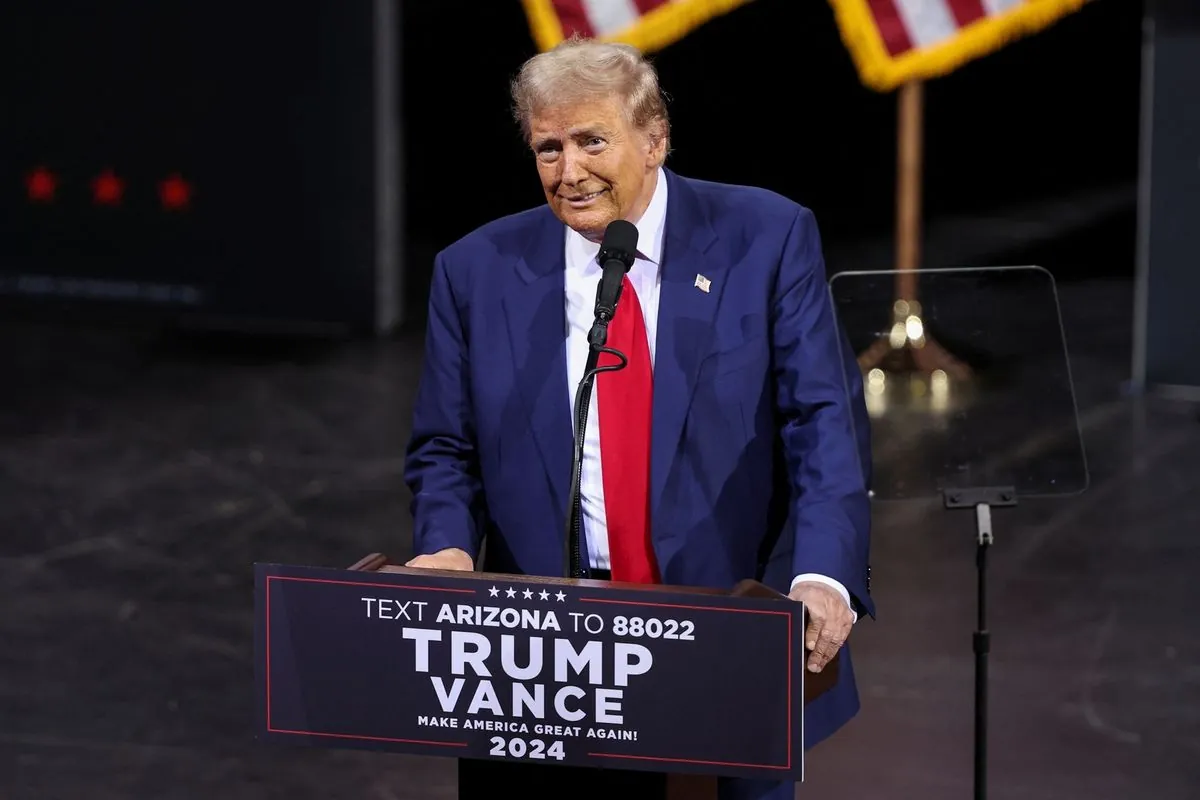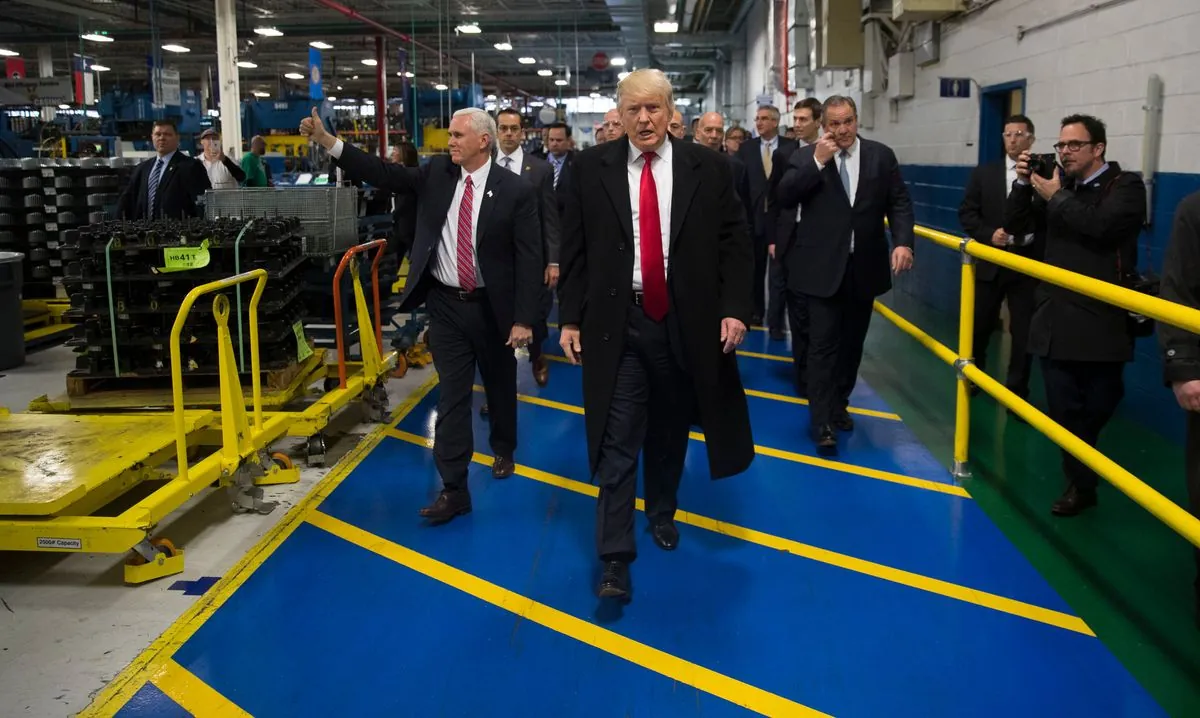Trump's Surprise Overtime Tax Cut Proposal Sparks Economic Debate
Former President Trump proposes tax-free overtime, surprising advisers and economists. The plan aims to benefit hourly workers but raises concerns about implementation and potential abuse.

In a surprising move, Donald Trump has proposed eliminating taxes on overtime pay during a recent campaign stop in Arizona. This unexpected announcement, made just two days ago, caught even his own advisers off guard and has sparked a heated debate among economists and policy experts.
The former president's proposal is aimed at appealing to low- and middle-income voters, particularly those in hourly wage positions. "We will end all taxes on overtime," Trump declared, suggesting that this move would incentivize work and potentially create a new workforce. This latest pitch follows his earlier proposals from last month to exempt tip earnings and Social Security payments from taxes, regardless of income level.

While the idea has garnered support from some quarters, economists have raised significant concerns about its implementation and potential for abuse. Brendan Duke, senior director for economic policy at the Center for American Progress, warned that without proper safeguards, the proposal could result in substantial revenue losses for the government. There are fears that employers might attempt to classify as much of a worker's wages as overtime as possible to take advantage of the tax exemption.
Stephen Moore, one of Trump's economic advisers, admitted that the announcement came as a surprise and that the details of the plan have yet to be worked out. He suggested that the proposal would likely require an act of Congress and might involve exempting overtime pay from income tax while still subjecting it to payroll taxes for Social Security and Medicare contributions.
The proposal has drawn criticism from Trump's political rivals. A spokesperson for Vice President Kamala Harris's campaign dismissed it as a "snake oil sales pitch," accusing the former president of attempting to deceive voters.
"The people who work overtime are among the hardest-working citizens in our country, and for too long, no one in Washington has been looking out for them."
This proposal comes against the backdrop of ongoing debates about overtime regulations in the United States. The Fair Labor Standards Act, enacted in 1938, established the framework for overtime pay, initially covering only about 20% of the American workforce but has since expanded significantly. Over the years, various administrations have made changes to overtime rules, with the current federal overtime threshold set at $35,568 per year as of January 1, 2020.
Economists have raised concerns about potential distortions in income reporting and worker classification that could result from Trump's proposal. There are fears that salaried workers might press for reclassification as hourly employees, and employers could manipulate base pay and overtime rates to maximize tax benefits.
While some states have taken steps to exempt overtime wages from state income taxes, with Alabama implementing an 18-month trial period set to end in June 2025, the implications of a federal-level exemption remain unclear. The proposal's potential impact on tax revenue and the Social Security Trust Fund is also a subject of concern, with previous estimates suggesting significant costs associated with similar tax exemption ideas.
As the debate continues, it's clear that Trump's overtime tax cut proposal has ignited a complex discussion about labor laws, tax policy, and economic incentives. With the 2024 election approaching, this unexpected pitch may well become a key talking point in the ongoing political discourse.


































